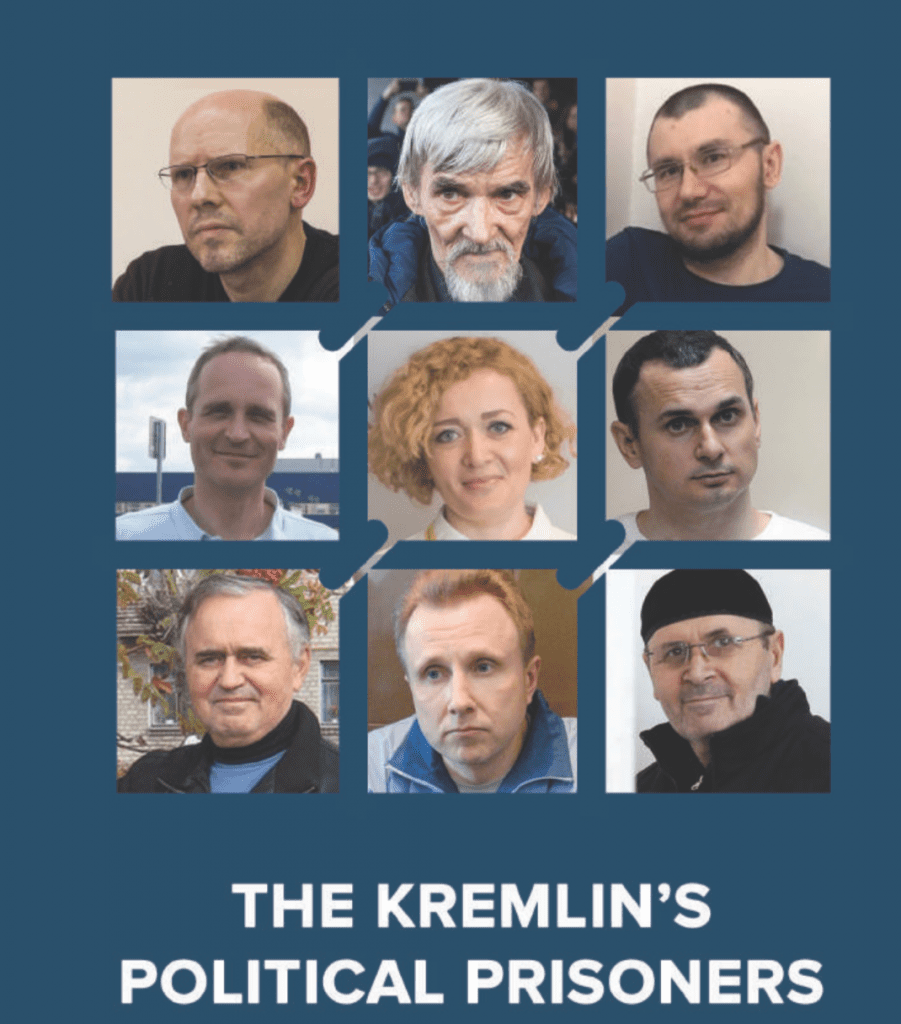OTTAWA —An all-party group of MPs is throwing its support behind a new report that names 16 individuals in Russia as responsible for the persecution of 296 political and religious prisoners, and calls on Canada to sanction all of them, including Russian President Vladimir Putin.
“That would send a very strong message,” said Conservative MP and ethics critic Peter Kent.
Conservative defence critic James Bezan noted Canada has listedVenezuela leader Nicolas Maduro for sanctions for abuses of power. “If we know Putin is responsible and directing all these abuses, I don’t know why we wouldn’t add him to the sanctions,” he said.
The report is entitled “The Kremlin’s Political Prisoners: Advancing a Political Agenda by Crushing Dissent.” Released in April, it was commissioned by a group of human rights organizations including the Montreal-based Raoul Wallenberg Centre for Human Rights.
Billed as the first comprehensive summary of the cases of political prisoners, it documents the cases of dissidents, Ukrainian citizens, ethnic and religious minorities, LGBT individuals and human rights defenders imprisoned under Putin’s government.
“We have identified the individual architects of this repression, and are calling for their targeted sanctioning under Magnitsky legislation,” said Irwin Cotler, director of the Raoul Wallenberg Centre, and a former Liberal justice minister. “Naming and shaming these human rights abusers is a crucial expression of solidarity with their victims and of ending the culture of impunity that underpins such criminality.”
Cotler said the report shows a sixfold increase in the number of political prisoners in the last four years, from 50 to 297.
Natalia Arno, of the Free Russia Foundation, another partner organization in producing the report, said: “Numbers are important and they are terrifying but behind each number is a human life, a human story and a human tragedy.”
Even since the report’s release in April, the number has grown, Arno told a news conference in Ottawa.
The Commons committee on foreign affairs, several members of which attended the news conference to support its call, held a special session to discuss the report.
The group backing the report’s call for additional sanctions included Liberal MPs Michael Levitt, chair of the Commons foreign affairs committee, Borys Wrzesnewskyj and Judy Sgro, along with Conservative and NDP MPs who were absent but were named as supporters.
Vladimir Kara-Murza, a Russian public intellectual who survived two assassination attempts, called on Canada to act, saying the prisoners’ “only hope is international attention.”
Putin is among several whom the report says have “command responsibility and line responsibility” and who do not appear on a list of 70 individuals so far sanctioned by Canada under the 2017 Justice for Victims of Corrupt Foreign Officials Act.
Kara-Murza pointed to Prosecutor General Yuri Chaika as someone who has been justice minister or prosecutor general responsible for the imprisonment of hundreds over the years, but who has never been sanctioned by any of the six countries who have passed so-called Magnitsky legislation. Kara-Murza said it is “high time” countries like Canada sanction him.
Specifically, the group says Canada should use the law named after Sergei Magnitsky, a Russian lawyer who died after he was jailed and tortured for attempting to expose corruption at senior levels of the Russian government.
In 2017, Canada passed legislation in his name which allows it to decide alone whether to issue economic sanctions against individuals deemed responsible for gross human rights violations or who are complicit in significant acts of corruption, as opposed to acting in line with multilateral groups like the United Nations.
The Magnitsky law allows for a range of sanctions including a freeze on financial accounts, services or assets, and a ban on Canadians or corporations from doing any business with listed persons here or abroad. It provides for a broad range of penalties from fines to up to five years in jail.
It’s one of several laws that impose a screening obligation on regulated financial institutions, including banks, credit unions, trust and loan companies, insurance companies, securities dealers and money services businesses.
Critics say Canada has been slow to implement its Magnitsky legislation, although it has listed individuals from Russia, Venezuela, South Sudan, Myanmar and Saudi Arabia so far.
“Canada has really been a leading light around the world in holding gross human rights abusers accountable under your new Magnitsky law,” said Jared Genser, a lawyer and co-author of the report.
“We and the people of Russia … desperately need the support of Canada, the United Nations and governments all over the world,” he said.
“The greatest fear of any political prisoner in my experience … is to be forgotten. And this report today is intended today to make sure that all of us remember not only who these people are … it’s to tell those stories so the world remembers and from there to ensure these perpetrators are held to account.”
Foreign Affairs Minister Chrystia Freeland told reporters in Montreal on Monday that she respected Cotler’s work and the government would study the report he presented “with great care and interest.”
She defended the government’s record on Russia and on speaking up for human rights around the world “even when speaking out comes at a price.”
“When it comes to Russia, Canada has been very clear in our concerns,” she said.
“We have imposed Magnitsky sanctions on an extensive list of Russian officials and we are constantly reviewing our Magnitsky sanctions and continue to do that.”
Freeland, a former journalist, also voiced concern over Moscow’s arrest last week of Russian investigative journalist Ivan Golunov, which Cotler also flagged.
She said Canada is following the case “very closely.”
“We’re living in a time when it is becoming more dangerous for journalists and that is a threat to all of us. Democracy can only exist where there is a strong, independent and free press.
“Where journalists are at physical risk, that does harm to the whole society.”


